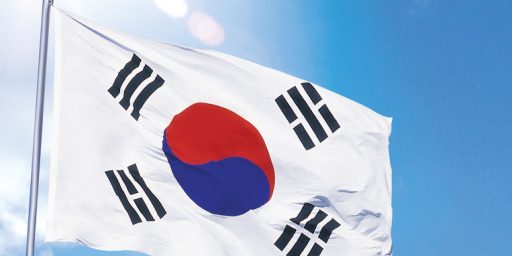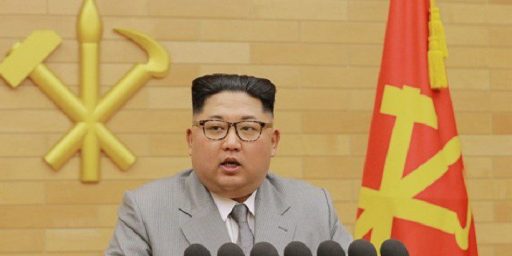South Korea Elects First Female President
South Korea’s Presidential election ended in a victory for the conservative party, but ended up being historic for other reasons:
Park Geun-hye is headed back to the Blue House. On Wednesday, South Koreans chose the daughter of South Korea’s Cold War strongman Park Chung-hee as the country’s next President. Park, the 60-year-old leader of the conservative Saenuri Party, defeated 59-year-old liberal challenger Moon Jae-in — once jailed for opposing her father’s rule — by a margin of about 3.5%. She will now move back to the presidential residence where she lived as a child and where she served as de facto First Lady after her mother’s death. Park has spent much of her life in her father’s shadow. Now, as the country’s first female President, she will need to chart her own course.
Moving forward won’t be easy. When outsiders think of Korea, they think of a divided peninsula, with the 38th parallel separating the totalitarian North from the democratic South. But South Korea itself is split. This year’s closely fought presidential race showed that South Koreans disagree not only about the future but also about the past. As the daughter of the most influential leader in her country’s modern history, Park Geun-hye is at the heart of that debate.
To her supporters, Park Geun-hye is a symbol of stability. After seizing power in a 1961 military coup, her father, General Park Chung-hee, made economic growth a national priority, picking promising industries and using them to export the country out of poverty. He put development first, urging his countrymen to “fight while working.” That relentless work ethic helped the country become a global economic player.
When First Lady Yuk Young-soo was killed in a botched attack on Park Sr. in 1974, Park Geun-hye stepped in as the acting First Lady. Her service to her grieving father (himself assassinated five years later) won her a reputation for steadfastness, poise and competence. Yun Byung-se, a career diplomat who served as an adviser to Park Geun-hye’s campaign, describes those years as formative: “Her involvement in politics and policy issues started very early.”
But Park’s political pedigree also works against her. While Park Sr. is worshipped by many South Koreans, especially older folk, for transforming the country’s economy, he is despised by many others. Park Chung-hee once wrote that, “In human life, economics precedes politics or culture.” But fulfilling his economic ambitions caused him to tighten his grip on power, not loosen it. He jailed and tortured dissidents, dissolved the legislature and rewrote the constitution to buttress his own position. To veterans of South Korea’s democracy struggle, daughter Park is a symbol of the country’s authoritarian past. For years, Park refused to criticize her father. This fall she officially apologized for the excesses of his era, but without condemning him outright. “I know more than anyone the divergent views about my father,” Park told TIME in written responses to questions. “I want to be judged on my own merits.”
Given that South Korea is still a very male dominated society, this is quite significant. It will be interesting to see how Park’s election will impact South Korean society as a whole.





I don’t let crimes work corruption of blood. I won’t let her father’s history cloud my judgment of her.
That said, because I don’t really care about South Korean politics at the moment, I’m not going to judge her.
@Jeremy: That’s very magnanimous of you–disinterested and non-judgemental, a good combination. But even if her father’s history clouded your judgement, what part of the history would be the cloudiest–ruthless political strongman (in the mold of virtually everyone else in East Asia at the time) or architect of Korean growth and prosperity?
Part of the problem of South Korea’s past authoritarian leadership is the mixed bag of effects–Park supressed his opposition and created the conditions for a manufacturing base that brought a traditionally impoverished country into the industrialized world, Chun Doo whan closed 120 some newspapers and even more news services to control the information that the population received and created the environment where, now, every hamlet in rural Korea (it’s not entirely a land of congested population centers, mostly, but not entirely) has a medical dispensary with a nurse on staff and visiting doctors several days each week. He also created the land reform measures that moved rural people largely out of poverty. If Kim Il sung, Fidel, and the others of the time had been as successful (concerned about their citizens?) as these “despots” were, the world would look a lot different today.
@Doug Mataconis:
Well…
It will be significant when they chose a candidate who isn’t the daughter, wife, widow of a former leader. Until then it’s a significant as, for example, Benazir Bhutto (daughter of Zulfikar Ali Bhutto) getting elected in Pakistan or Megawati Sukarnoputri (daughter of Sukarno) getting elected in Indonesia.